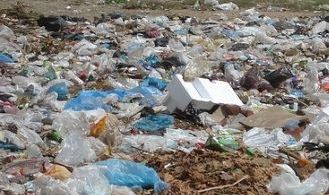
Kampala City Traders Association (KACITA) has revealed to traders that the Kaveera ban is still on and that NEMA will implement it.
Speaking to traders today in Kampala, KACITA Secretary General Mr. Sentamu Ephraim Kaddu said that after having consultations on 8 April with the government, NEMA and other stake holders, it was agreed that the ban on polythene products with less than 30 microns remain in force.
Mr Sentamu told the traders and manufacturers that they can only deal in products with microns 30 and above. “As KACITA we don’t allow any trader to sell those products that have below 30 microns,” he said. ”NEMA should not go on harassing traders that sell Buveeras with 30 microns and above.”
Dr. Tom Okurut told the traders that NEMA would go ahead to do its job of implementing the ban. He further advised the manufacturers to come up with better polythene products that are environmental friendly. “We will find alternatives, many companies have invested in tree planting,” he said, adding: “You should invest in other packaging products.”
This development leaves traders who had acquired new polythene stocks in dilemma. NEMA in conjunction with police will confiscate there products if they are below the required micron percentage.

Mixed feelings at NEMA-KACITA meeting.
Traders under their umbrella body Kampala City Traders Association (KACITA) have failed to reach a consensus with National Environment Management Authority (NEMA) officials. The traders blame NEMA officials for impounding their polythene products without considering their micron percentage.
Speaking at a press conference held today at Diamond Hotel, Kampala, the traders owning ‘buveera’
wholesale shops complained that NEMA officials confiscate their merchandise without considering the micron percentage in them.
The traders allege that all plastic bags are impounded thus making them incur losses. “We are really in a tight state now, I imported polythene products that are above 30 microns but NEMA impounded all of them,” said Mr. Kyeyune Sadik, a trader in Kikuubo.
Traders asked NEMA that if the “Kaveera ban’ is to succeed, sensitization was needed and all stake holders needed to be educated about it. “All of us want to learn about the Kaveera ban but we haven’t been sensitized properly,” said Ms. Muwanga Rehema.
Mr. Sabra Naim, a member of Uganda Plastics Manufacturers and Recyclers Association (UPMRA) blamed NEMA for what he termed as ‘spending money in the wrong direction.’ He advised NEMA to hold dialogue with the traders instead of confiscating their merchandise.

“I have a license and I was allowed to manufacture, you (NEMA) are fighting the traders yet we (manufacturers) are allowed to produce,” asserted Mr. Sabra. He advised NEMA and the government to consider recycling since most African states do it, saying, “the only way forward is recycling to mitigate climate change.”
Dr. Tom Okurut, the Executive Director NEMA called upon all traders not to put the blame on NEMA because it was only implementing what was passed by parliament. “Those arguments should be taken to parliament,” he said.
The Uganda parliament passed the Kaveera ban law in 2009 and after six years when it was passed, the polythene bags are still on the market. Earlier this year NEMA decided to implement the ban amid protests for traders and manufacturers.






